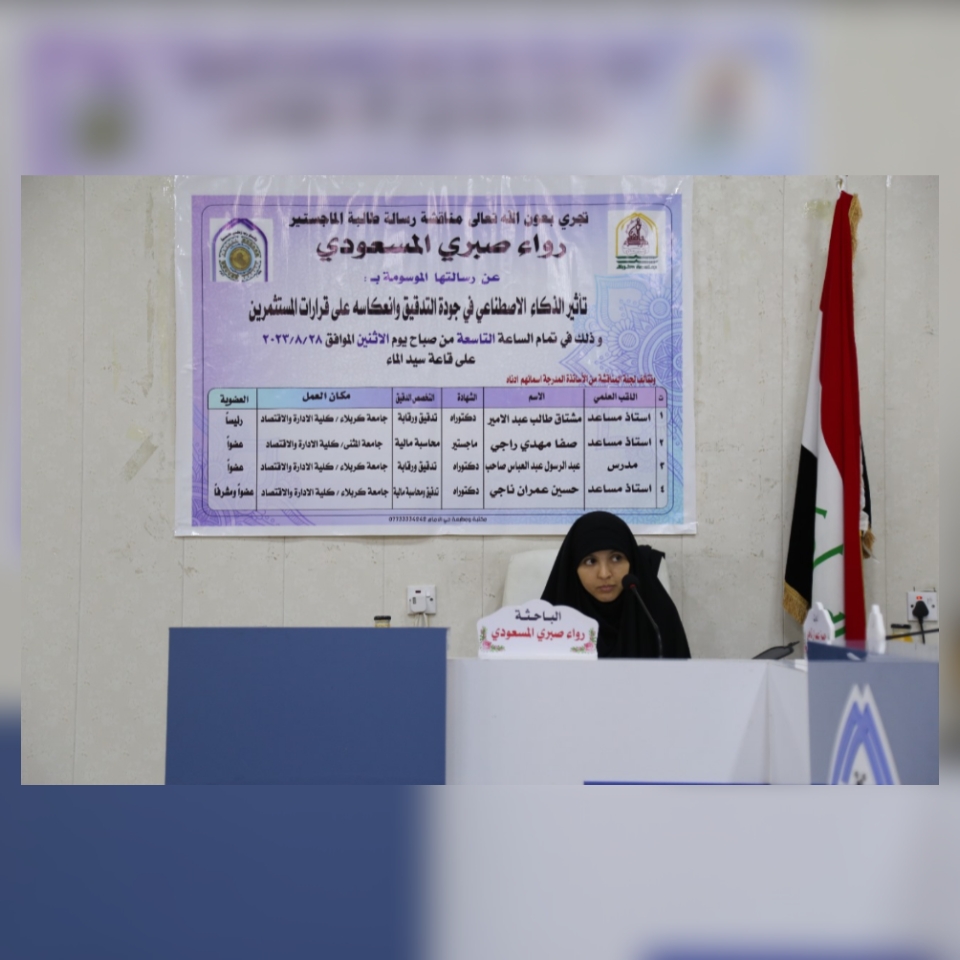The impact of artificial intelligence on audit quality and its reflection on investor decisions
Master’s thesis submitted to
The Council of the College of Administration and Economics- University of Karbala, which is part of the requirements for obtaining a master’s degree in accounting
Submitted by
Rawaa sabri AL-Masoudi
Supervised by
Assistant Professor Dr Hussein Omran Al-Rifai
Abstract
This research aims to demonstrate the impact of artificial intelligence in its dimensions (expert systems technology, machine learning technology, continuous auditing technology, natural language processing technology, robotic process automation technology) on the quality of external auditing and investors’ decisions, as well as the impact of the quality of external auditing on investors’ decisions, and to achieve For this purpose, the researcher relied on designing a questionnaire as a data collection tool consisting of (155) questionnaire forms that were distributed to a sample consisting of (accountants, auditors, certified public accountants, auditors, financial managers) working in accounting and auditing offices and Iraqi companies listed in the Iraqi market. Securities, and (135) valid questionnaire forms were retrieved for analysis, the results of which were approved for the purposes of statistical analysis.
The advanced statistical program Smart-Pls and appropriate statistical methods were used to test hypotheses, and the results showed that there is a statistically significant effect on the use of artificial intelligence techniques (expert systems, machine learning, continuous auditing, natural language processing, robotic process automation), as this effect appeared on… All dimensions indicate the importance of artificial intelligence applications in improving the quality of external auditing, and there is a positive impact on the use of artificial intelligence techniques in developing investors’ decisions through the quality of external auditing. Based on the results reached, the researcher recommends to all accountants and auditors the need to keep pace with technological developments and respond to changes in the surrounding environment by developing their skills in artificial intelligence techniques, and the need for audit offices to move towards applying artificial intelligence techniques in performing their work by encouraging them to replace their manual systems with computerized systems to improve Effective auditor performance, increasing information accuracy and reducing the time of the audit process.































































